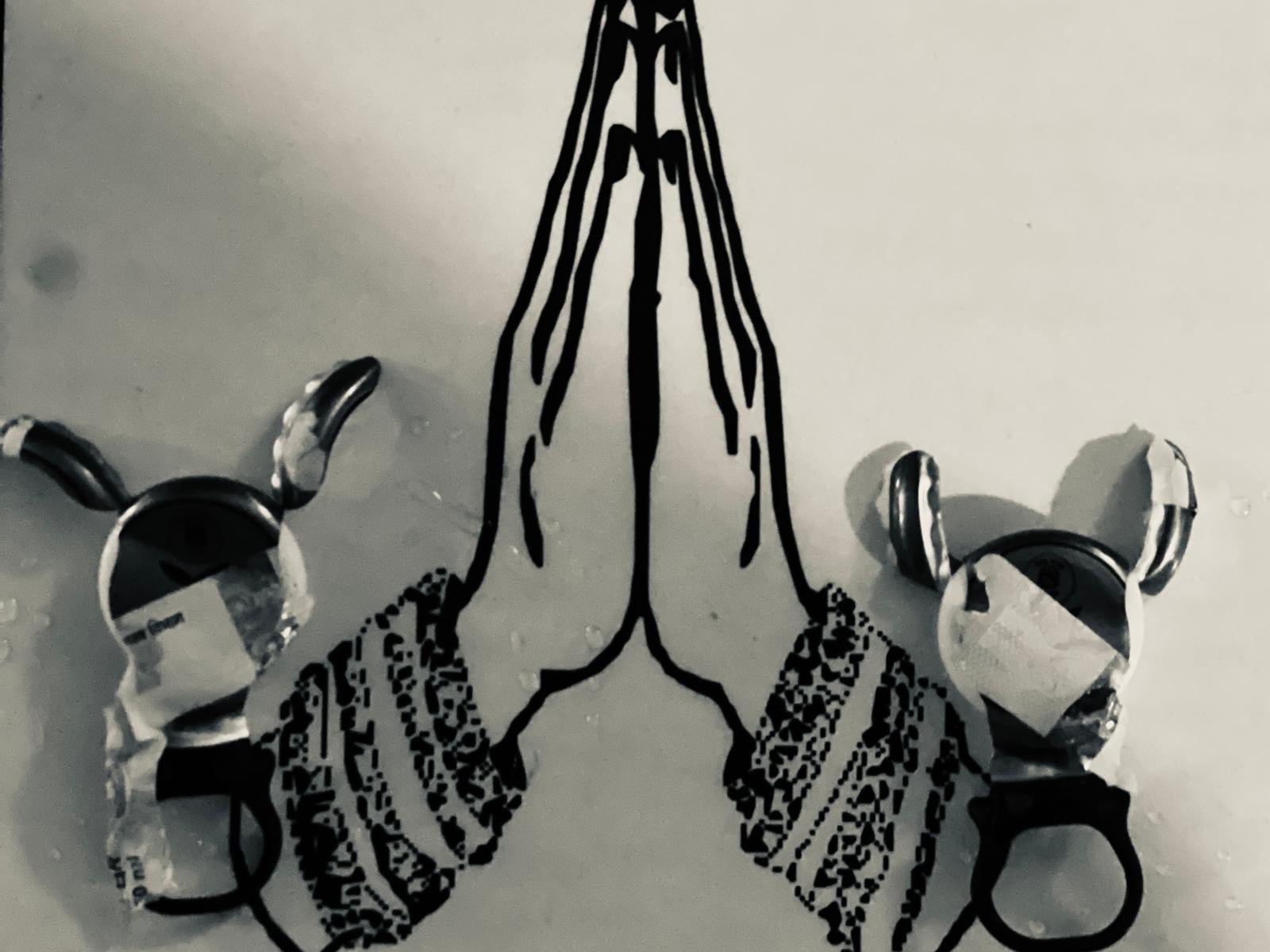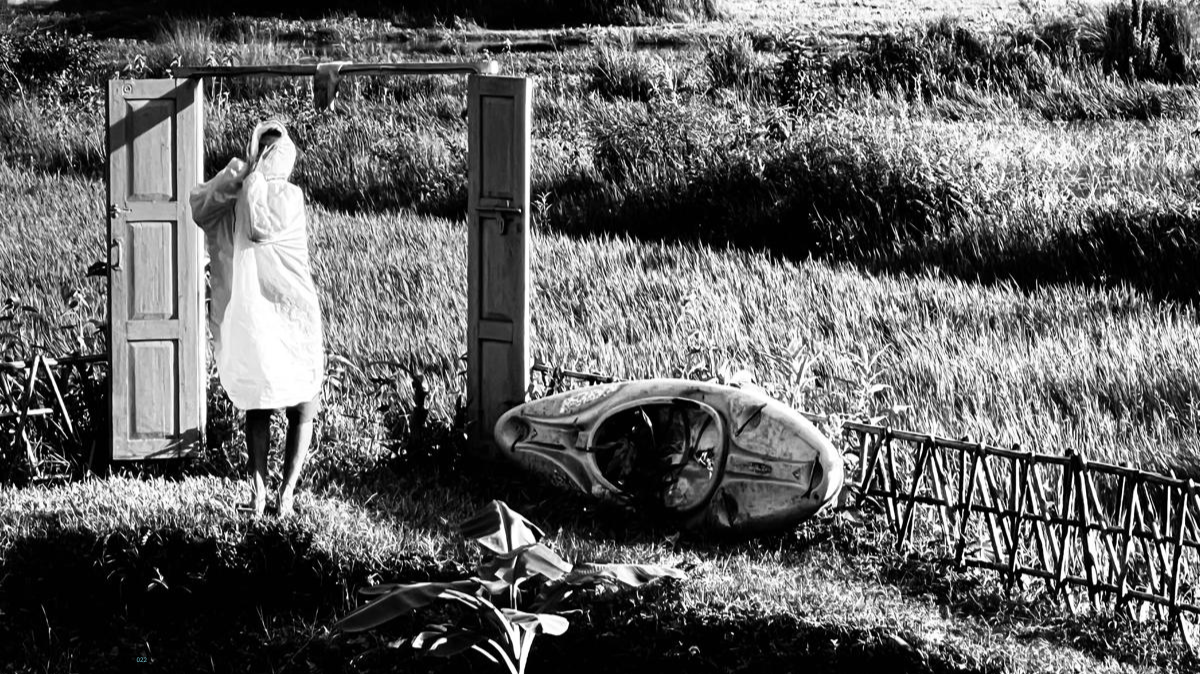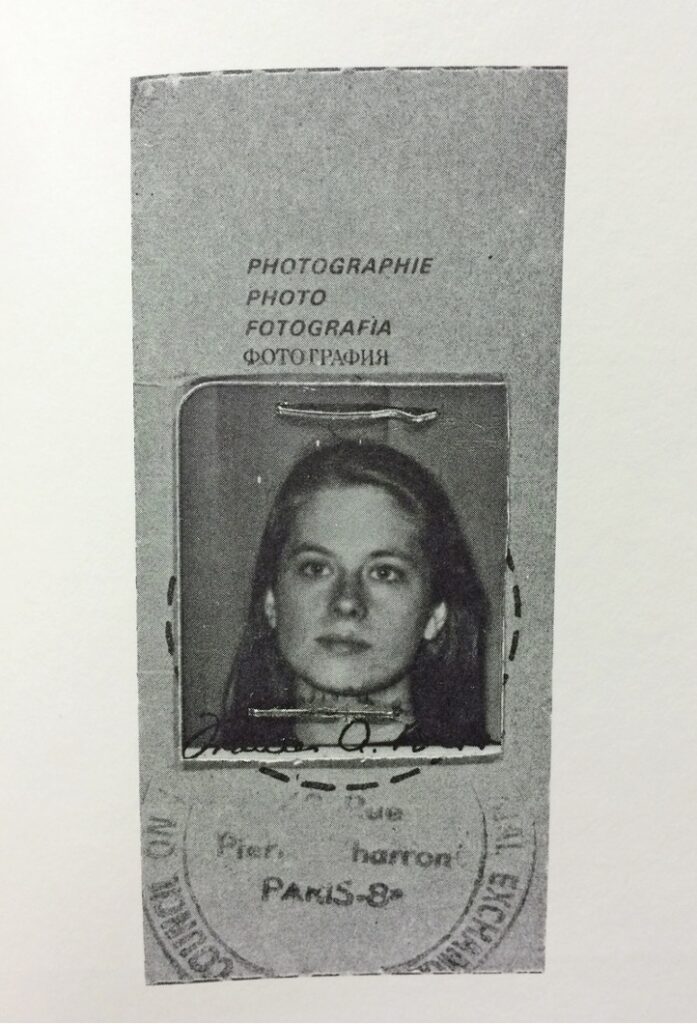NOWHERE-NOW HERE, HECTOR CASTELLS TRAVEL JOURNAL – NEPALESE CAPSULES: EPISODE IX.
THE SLIP READ RIP
“Michel Butor says that to travel is to write, because to travel is to read. This can be developed further: To write is to travel, to write is to read, to read is to write, and to read is to travel (…)”
—Excerpt from Lydia Davis’ short story To Reiterate
0 The End
Now Here, New York, 1969
Reading Lydia Davis is always a journey: no matter where you start, you’d come out somewhere else feeling better than before, unlike what happens with Instagram, shopping malls, funerals or embassies.
You have used Lydia’s writing during most of your life, and you wonder if you still have it, if the accident might have destroyed your ability to receive and transcend, to channel her in that thrilling, liberating way.
THE ACCIDENT
Now Here: Gandaki, Nepal, August 2025
First you hear the sound. It travels much faster than life or afterimages. By the time you understand its deadly nature, dust is already inside your throat, mud covering your cheeks and eyelids: you are buried in dirt and rubble.
You dreadfully hug your backpack until you become one, like the plaster casts of Pompeii’s carbonised corpses.
Before fading to black, you hear a whisper:
“Tighter, H, tighter”.
These are your backpack’s famous last words.
Yours won’t come out.
Nothing.
A few hours before the accident
Pokhara, Nepal, August 2025
The guess mother is talking to the cab driver inside the vehicle, outside the entrance of your homestay. Her name is Gina. She looks 45. She is 67.
She was evacuated from Everest last night. She developed altitude sickness. Her limbs were numb, her head pounding and her lips blue.
She has woken up with a heavy head but has succumbed fast to her versatile host, the ever-charming Rishi. He has invited her to the Indian music gig and now she is downstairs, talking to the driver like there’s no tomorrow, thirteen minutes away from the auditorium.
You are in your room listening to a favourite song of 1996; Projekt PM’s When The Voices Come. The tune becomes premonitory thirty-one years later.
INSIDE
Gina’s voice creeps through the gap between your door and threshold, and smoothly incorporates itself to Projekt PM’s soundtrack. It takes you a while to realise that there is a guest voice in the room, and when you do, Rishi flashes up.
“Dude. Get your shit together. We are leaving in five.”
You ask where he is. He hangs up. You read the text.
“OUTSIDE, INSIDE the cab.”
You get your shit together. You are looking forward to listening to Saraswati playing her ancient Veena. But wait, is she playing tonight?
Time gets very confusing before you die —let alone during or after.
Now Here, New York 1969
“(…) But George Steiner says that to translate is also to read, and to translate is to write, as to write is to translate and to read is to translate. So that we may say: To translate is to travel and to travel is to translate. To translate a travel writing, for example, is to read a travel writing, to write a travel writing, to read a writing, to write a writing, and to travel (…)” —To Reiterate —Lydia Davis.
THE REAL DILIA
Before she could translate travelling words, dismantle French phonetics or write about the loneliness of her housemate the spider, Davis wrote her undergraduate thesis on her favourite new book, Degres, by Michel Butor, in the spring of 1969.
It is the painstaking account of a schoolteacher describing his Geography classroom during a specific hour of a particular day. The teacher aims to transcribe the action following the school timetable, a rigid structure that should allow him to chronicle reality objectively—except objectivity doesn’t exist beyond the delusion of journalism.
COFFINS AND MEALS
Butor tries to nail reality’s coffin like a circumspect carpenter, and every time he hammers a tack, a spectre of dust forms before his eyes, revealing a constellation of gravities moving like algae, pulsating melancholy and joy, disrupting time and space, until transforming the school class into the impossible photograph of a moment in time called Eternity.
To classify and put reality into boxes is the ultimate writing nightmare.
To find eternity in words only happens once every two thousand writers.
Describing is the beginning of travelling —and literature.
Time does not exist.
You are hypnotised.
LEOPARD CUBS
Now Here, Pokhara before the Accident, August 2025
Rishi’s family is squeezed on the back of the cab, their dignity blooming in dazzling red, wife and daughter bundled up in velvety saris under Rishi’s wide-brimmed hat, a straw parasol filtering the reckless sunshine, providing a mottled shadow that seems to turn mum and daughter into friendly leopards.
You stick your head inside and say hello and sorry and then sorry, sorry, sorry, and then the guess mother turns her neck in slow motion, clocks your pupils and pulls the trigger:
BOOM
“Are you going to say sorry forever?” It is Gina speaking.
You avoid the sorry word for once. Next thing you say it.
“I’m sorry, I’m Irish for this conversation.”
“What conversation?
“Apologising for making you wait.”
“Say hello to my daughter and stop talking like a French man,” says Rishi.
“I was talking like an Irish, for fuck sake!”
Gina is laughing like a Swiss: half smirking while fully scrutinising.
You ask if she is Swiss. She is puzzled.
“How would you know?”
“I was just reading about you.”
You unearth your Kindle and show her the page. She reads it out loud.
BIG SWISS
“It’s the old Swiss woman sitting across from you. She’s calm and serious and staring hard at your chest, so you look down at yourself, expecting to find a mustard stain, but there’s nothing. Now she’s staring at your sleeve, now the buttons on your shirt. Her eyes linger on your collar. You think, Okay, she’s moving up to my face. When she sees my face, she’ll look away. Nope. Her eyes slip down to your stomach. They travel over your crotch. Your pant legs. You can see her making little judgments and appraisals. Meanwhile, you’re just waiting for her to look at your face, because you want her to know that you’ve caught her staring. Well, the joke’s on you, because guess what? She doesn’t care. She shamelessly evaluates your face, too, even though you’re giving her a look of death. She doesn’t even register your expression. She looks you directly in the eyes, but she doesn’t see you.”
Jen Beagin. “Big Swiss.”
Now Here: Gandaki, Nepal, August 2025.
The night before the accident, your fixer and Sherpa, Rishi, asks you to swing by his guesthouse to plan your trip. He lives in a country house not far from Pokhara’s lakeside with his wife, daughter, and famous guests, mostly revered Hindu musicians eager to play with him —he is the most acclaimed Nepalese drummer since he was 11, circa thirty five years ago
Rishi is trimming his origami looking orchard. He talks extensively about subtropical flowers of impossible names, and he keeps inhaling them like a bud weirdo: it reminds you of Dennis Hopper in Blue Velvet.
He uses little tweezers and cuts a purple stalk with a rocket looking leaf: “You can smell this one, but don’t dare licking it: it is the most poisonous flower in Nepal. Close your eyes and smell.”
You wonder if you look like a flower licker, ask yourself when did it all go wrong, and do as you are told.
You are great at it since everything went wrong.
The flower has a pungent, sordid smell before turning into an intoxicating fragrance. You feel the urge to lick it. You stick out your tongue.
“What are you doing? Fucking pervert!”
HOLOGRAM
You open your eyes. You rub them. They are open. You rub them again. Feels like dreaming. She resembles the hologram of a future goddess. She is not saying fucking pervert, she would never say that, that’s what she says.
“Oh dear, I’m so sorry,” you say.
“Don’t say dear. Never before SORRY”! It makes you sound so OLD.”
You can barely say anything. You drool instead.
She is floating in gasoline rainbows, and every time you blink her profile multitasks: she is like a transformer, eight-folded version of Saraswati, the Goddess of Music.
You wonder what happened to Rishi when he says.
“Perfect timing mate! This is YesNo, the greatest Veena player from India. YesNo, meet Harper God. He is a brave cyclist and writer from Catalonely. You must come and see her playing after your trip!”
VEENA AQUÍ
YesNo is holding her inherited Veena and floating in the heart of the garden. You do the praying hands emoji, say Namaste, and the instrument bows at you. Literally.
TO REITERATE
Everywhere, August 2025.
She smiles and plays a note capturing this moment in time. You smile and she plays another. It contains the immediate future. It is chilling.
You stand still and she does not play. Her glance is skinning you, there’s a depth to her eyes darker and greater than the Himalayan ravines. The drop is vertiginous. You are falling.
“This instrument can channel your vibration and perform it. Right now is saying that you are not here, that you are stiff as fuck. Oh my Shiva!!”
She looks at you and cries.
“You will die on that trip: don’t go.”
FADE TO DEATH
“But if because you are translating you read, and because writing translate, because traveling write, because traveling read, and because translating travel; that is, if to read is to translate, and to translate is to write, to write to travel, to read to travel, to write to read, to read to write, and to travel to translate; then to write is also to write, and to read is also to read, and even more, because when you read you read, but also travel, and because traveling read, therefore read and read; and when reading also write, therefore read; and reading also translate, therefore read; therefore read, read, read, and read. The same argument may be made for translating, traveling, and writing.”
Lydia Davis. “To Reiterate.”
QUESTION MARK EMOJI
This must happen after the accident.
YesNo foresees your death and plays her music. Time does not exist. You are hypnotised.
It is like reading Michel, translating Lydia or witnessing a tightrope walker traversing the thousand abysmal parallelograms that link life and death.
You are ecstatic.
It is the first religious experience of your life. You were atheistic two seconds ago. Now you are the most fervent champion of death and miracles.
“Wait until you see her playing,” says Rishi.
You don’t understand the meaning of verbs anymore; you can only conjugate the deadly one.
Before the Gig
Gina is distraught and oblivious to Big Swiss. She says that the auditorium is tiny. She tells you where to sit. She asks who is the host, why the sound is so bad, where are you from. You look around for empty seats. There is one four rows down the aisle. You relocate. There are children and mothers in the dark. They are all smiling at you.
The host walks the stage like an injured rugby player. He has the head of a bull and speaks in broken English.
He introduces YesNo and the stage multiplies, the lights recede, and she is floating in the middle with the Veena.
The host says that she is the granddaughter of the greatest player who ever lived, and that she is going to play his instrument, her inheritance. It is 400 years old.
DELIGHT
The light engineer switches all the bulbs except the one on YesNo and the Veena.
It is like watching Caravaggio painting live on ayahuasca.
You are travelling Nepal and the Amazon, you walk into a dark jungle. There’s a fluorescent light outlining the endless forest and the Veena emerges from its heart like the head of an insect carved in Easter Island.
The stars swirl and you are pedalling the contours of outer space.
There is a light inside your chest. Your blood is pink and your skin transparent. You have travelled the world, heard it all. You know that music is the answer, that in the beginning there was a frequency.
What you didn’t know is that beyond life and music, there is a Veena.
It is your vessel. It has come to pick you up: its sail is your freedom.
YesNo plays the chords smoothly and millions of dragonflies emerge from its mast, notes drifting like glitter over your ashes.
It was a landslide.
You are buried, but not quite just dead yet.






